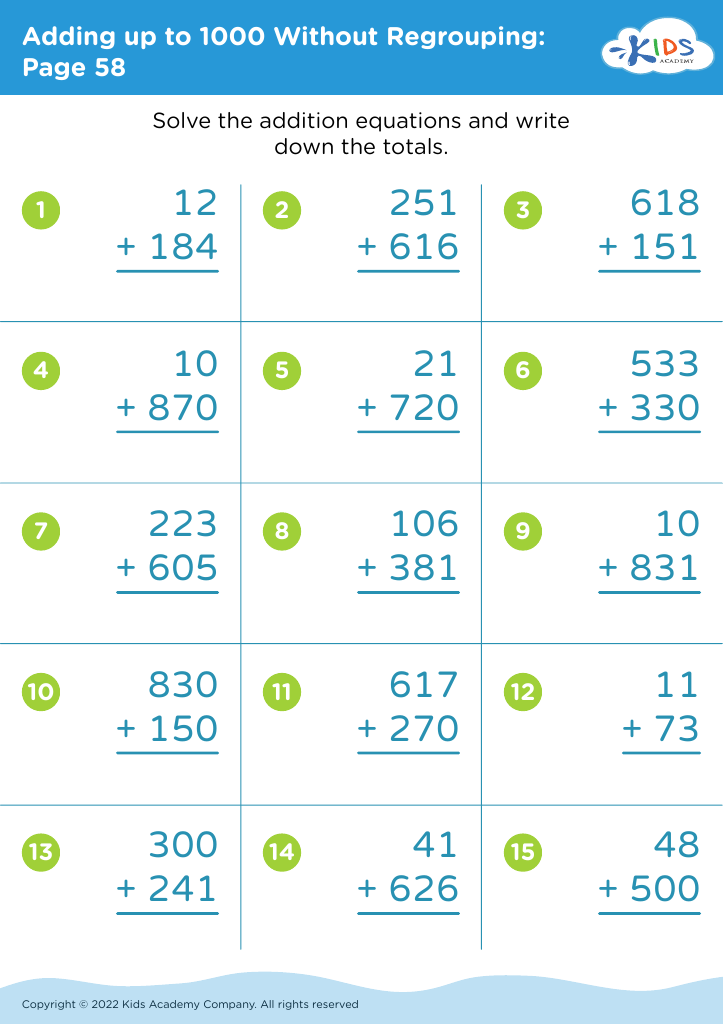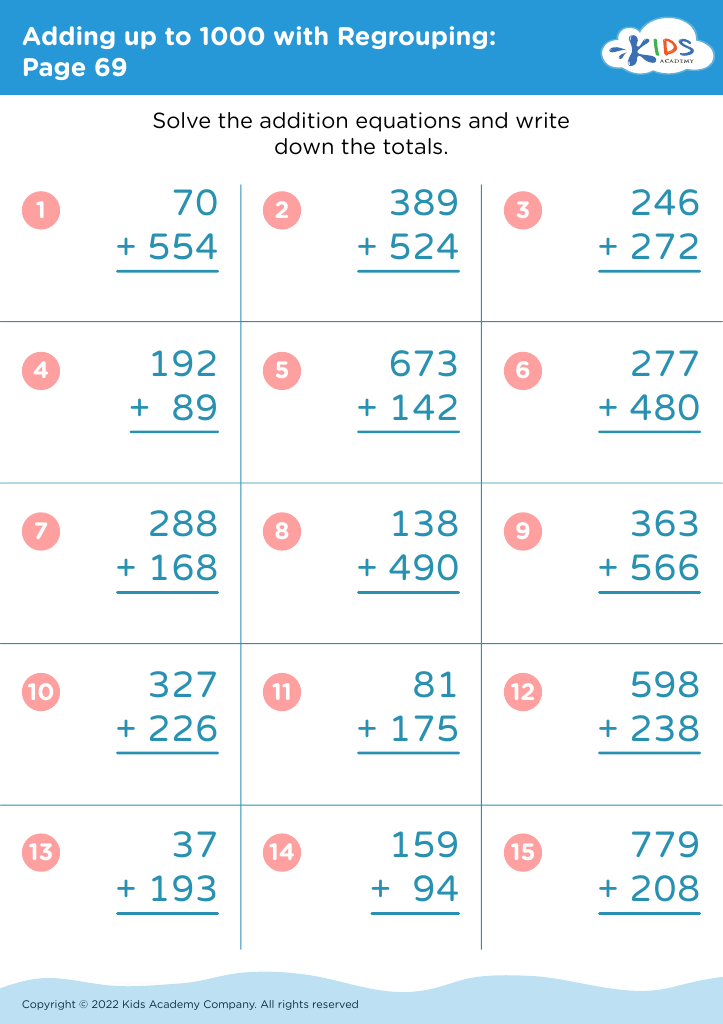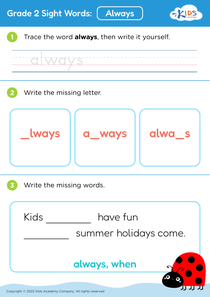Comparison Skills Grade 2 Addition Worksheets
3 filtered results
-
From - To
Enhance your second grader's math journey with our "Comparison Skills Grade 2 Addition Worksheets." These interactive resources are specially designed to help young learners grasp the concept of comparing sums and mastering addition skills. By engaging in fun exercises, students will learn to determine greater than, less than, or equal to relationships between numbers. Our worksheets are not only educational but also promote critical thinking as children analyze and compare different sums. Perfect for both classroom and home use, these engaging activities will boost confidence and proficiency in addition, laying a strong foundation for future math success. Download now for a fun learning experience!
Comparison skills in Grade 2 addition are crucial for young learners as they underpin a child's mathematical understanding and critical thinking abilities. At this stage, children begin to grasp the importance of comparing numbers, which helps them engage with more complex concepts like quantity, measurement, and mathematical reasoning. When children learn to compare sums or differences, they develop the ability to assess which quantity is greater, which contributes to their overall mathematical fluency.
Caring about these skills is vital for parents and teachers because foundational mathematical knowledge supports various aspects of daily life, from budgeting to problem-solving. Strong comparison skills also facilitate progression in higher mathematical concepts, such as elementary algebra or data interpretation, setting students up for success in future grades.
Additionally, fostering comparison skills nurtures social development, as children learn to articulate their reasoning during discussions, such as determining who has "more" or "less." By emphasizing comparison skills in Grade 2 addition, parents and teachers can cultivate confident and capable learners who can navigate both mathematical tasks and real-world challenges effectively. Investing in these early educational experiences will pay dividends in the child's academic journey and personal growth.























